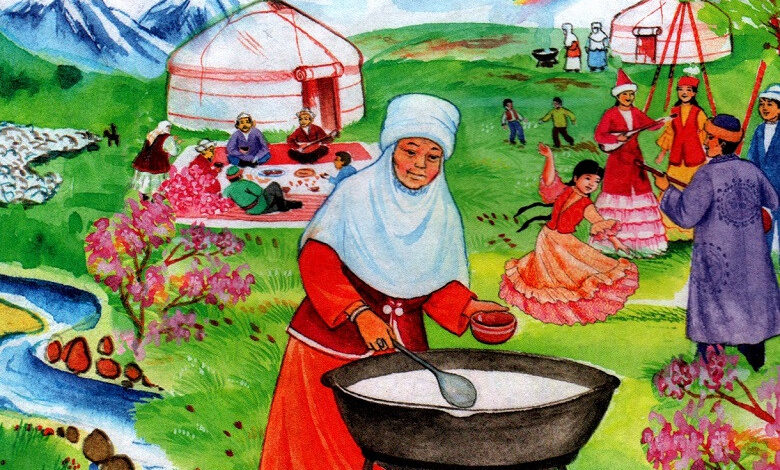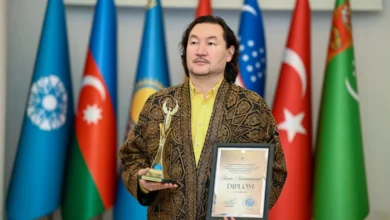International Nauryz Day: Happy New Year!
The names of the holiday may vary in different countries - Navryz, Nauruz, Nauruz, Nevruz, Nowruz, Nouruz, etc.

The word Nauryz (Novruz, Navruz, Nooruz, Nevruz, Nauryz), means new day; its spelling and pronunciation may vary by country.
Nauryz marks the first day of spring and is celebrated on the day of the astronomical vernal equinox, which usually occurs on 21 March. It is celebrated as the beginning of the new year by more than 300 million people all around the world and has been celebrated for over 3,000 years in the Balkans, the Black Sea Basin, the Caucasus, Central Asia, the Middle East and other regions.
On February 23, 2010, the UN General Assembly declared March 21 the International Day of Nauryz. The resolution of the General Assembly with this title was adopted at the initiative of Azerbaijan, Albania, Afghanistan, the former Yugoslav Republic of Macedonia (now North Macedonia), India, Iran, Kazakhstan, Kyrgyzstan, Tajikistan, Turkmenistan and Türkiye.
The celebration of Navruz means the affirmation of life in harmony with nature, the realization of the inextricable link between creative work and natural renewal cycles, and a caring and respectful attitude towards the natural sources of life.
It is believed that this holiday promotes the values of peace and solidarity, both between generations and within the family, as well as reconciliation and good neighborliness, which contributes to the preservation of cultural diversity and the strengthening of friendship between peoples and different communities.
The traditions and rituals of the celebration of Nauryz in each region are different, but they are united by many features. In most countries, symbolic fire and water are prepared before the holiday, traditional dances end with jumping fires and streams.
In Iran, such dances take place on the last Wednesday before Nauryz and are known as Charshanbeh Suri or Charshanbeh-e Atash. In Azerbaijan, this custom is carried out four Wednesdays before the celebration of Nauryz.
In many places where Nauryz is held, families stock up on water on the last Wednesday of the year. In Kyrgyzstan, all containers in the house must be filled on the eve of the holiday. It is believed that this will bring abundance to the house in the new year and drive away adversity.
Another Nauryz tradition is to visit the cemetery before the holiday, where people bring candles to commemorate the dead. In Kazakhstan, on the eve of Nauryz, two candles are placed in front of the front door of the house. In Azerbaijan, this ceremony takes place on the second day of Nauryz, known as Parents’ Day.
On the day of Nauryz, people go to visit each other and give gifts. Children are often given small toys, traditionally they play with artistically designed eggs. Families and local communities share a traditional treat with each other, which consists of boiled rice and vegetables with a variety of local products. In Kazakhstan and Kyrgyzstan, a festive meal is a public ceremony at certain places in the city where Nauryz Kozhe or Chyn Keje, a soup made from bovine meat, is prepared.
The widespread tradition of Nauryz is the preparation of a festive table, on which a number of items are placed – a symbolic gift to the Sun for a rich harvest. In particular, a mirror is placed on the table and candles are lit according to the number of family members, which cannot be extinguished until they burn out to the end.
In Azerbaijan, the main dish of the holiday is pilaf, as well as traditional sweets – shekerbura, baklava and gogal. All of them have a symbolic meaning: shekerbura is a symbol of the new moon, baklava is a symbol of the stars, and gogal is a symbol of the sun. Xiameni halvasy is also one of the symbols of Nauryz. The composition of this halvah is simple, but it is difficult to prepare it: it takes about two weeks.
Nauryz is traditionally accompanied by festivities, festive processions, concerts, culinary competitions of cooks, sports competitions, wide fairs and colorful exhibitions.



